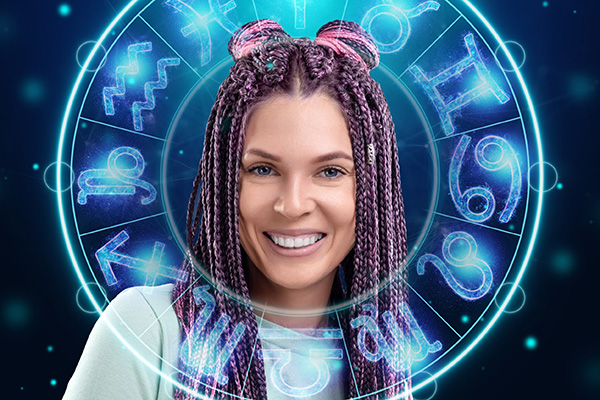conflict
Overcoming Your Inner Saboteur
 Have you ever wondered why people sometimes try to ruin an ideal opportunity in their life, or deliberately sabotage a promising relationship?
Have you ever wondered why people sometimes try to ruin an ideal opportunity in their life, or deliberately sabotage a promising relationship?
Even though I have done thousands of readings over the years, I cannot help but still be surprised when I work with people who are in the process of sabotaging a wonderful relationship or alienating a loving, caring partner. Reading for people of all ages and walks of life around the world has shown me that this behavior is relatively common.
Not all psychic readings are about difficult relationships, difficult or cheating partners, or boring marriages. Sometimes they are about perfectly wonderful relationships that one of the partners is doing their best to destroy!
In these relationships, the saboteur consciously or unconsciously creates a toxic scenario or behaves in a dysfunctional way that will ultimately lead to a breakup. For example, the saboteur will begin to find fault with their partner, subtly push them away, or find reasons to walk away from the commitment.
Relationship readings for self-saboteurs often begin with them saying something like: “Well, things are rosy now, but they always start out that way,” or “Knowing my luck, she’ll soon get bored with me,” or “To be honest, things are so good with him, I’m just waiting for the other shoe to drop!”
It reminds me of my grandmother, who was abandoned by my grandfather when my mother and her sister were very young. She used to say, “All men are gorillas!” I later realized that my mother had adopted the same mindset.
Free Yourself From Karmic Debt
 One of the most important things we must do before we leave this life and embrace the next is to ensure that our karmic debts are completely resolved. By doing so, we leave this world unburdened and ready to embrace our next existence with complete bliss.
One of the most important things we must do before we leave this life and embrace the next is to ensure that our karmic debts are completely resolved. By doing so, we leave this world unburdened and ready to embrace our next existence with complete bliss.
Now, if the consequences you may suffer in the afterlife are not of much concern to you, and you feel that karma is not really your problem, you may want to reconsider.
Carrying the heavy burden of karmic debt can also cause considerable misery and struggle in our present daily lives, manifesting as recurring negative patterns and obstacles that hinder our progress and well-being.
Our unresolved karma often leads to dysfunctional relationships, financial difficulties, health problems, and emotional turmoil as past harmful actions generate corresponding negative consequences. An ongoing state of karmic debt fosters feelings of frustration, helplessness, and despair, making it difficult to achieve happiness, joy, fulfillment, and peace.
By carrying the weight of unresolved karmic debt, you may find yourself trapped in a cycle of suffering, unable to break free and achieve the positive, fulfilling life you desire.
Karmic debt is a concept rooted in the spiritual principle of karma, which is a fundamental belief in many Eastern philosophies and religions, especially Hinduism and Buddhism. Karma refers to the universal law of cause and effect, whereby every action has a corresponding reaction. Our poor choices and negative actions create a spiritual debt. By acknowledging this debt and resolving our past mistakes, we achieve a state of inner peace, higher consciousness, spiritual growth and enlightenment.
Is Your ‘Friend’ A Toxic Energy Thief?
 Do you have a friend who constantly makes you feel unbalanced and drained, while adding no value to your life? We’ve all had that so-called ‘friend’ who doesn’t seem to care much about our well-being. Sometimes they don’t even seem to like us at all!
Do you have a friend who constantly makes you feel unbalanced and drained, while adding no value to your life? We’ve all had that so-called ‘friend’ who doesn’t seem to care much about our well-being. Sometimes they don’t even seem to like us at all!
They are that fair-weather friend who drains your energy and constantly exhibits toxic behaviors that destroy your inner peace, steal your joy, and disrupt your spiritual balance. Interacting with them increases your stress or anxiety, and even triggers a sense of disconnection from your true self.
If you have such a “friend,” consider this a serious wake-up call. After all, with a friend like that, who needs enemies? And if you have more than one such friend, consider this an urgent intervention!
The truth is that having an energy vampire masquerading as a friend in your life poses significant spiritual dangers and negative effects on your overall health and well-being.
Constant interaction with someone who is unkind and unsupportive hinders your personal and spiritual growth. Instead of uplifting and encouraging you, they serve only to hold you back and may even discourage you from pursuing your dreams. These people are not your friends.
It reminds me of the karate classes I used to take. We were taught to have ‘situational awareness.’ In karate, this refers to being fully aware of your surroundings, including potential threats, opportunities, and obstacles during training, sparring, or self-defense scenarios. It involves being mentally present and observing the environment, the opponent, and any relevant factors that could affect the outcome of a situation.
The Karmic Magnetism Of A Soul Love Connection
 When we meet someone that we feel a deep, inexplicable love connection with – that magical spark that goes way beyond the surface – it’s never just chance or luck. It happens when two souls resonate on a deeper level, be it emotional, spiritual, or psychological.
When we meet someone that we feel a deep, inexplicable love connection with – that magical spark that goes way beyond the surface – it’s never just chance or luck. It happens when two souls resonate on a deeper level, be it emotional, spiritual, or psychological.
Spiritually, we are like magnets. Sometimes we are irresistibly drawn to people who have qualities or energies that match our own. Other times we’re fascinated by those who seem to embody qualities that are different or even opposite to our own.
Like opposite poles of magnets, soul mates or spiritually compatible partners feel a natural pull toward each other. This attraction can be inexplicable, a deep sense of recognition, or a familiar feeling of “coming home.
This kind of attraction is never random; it’s part of the divine plan that guides our journey of personal growth and soul evolution. The people we’re attracted to, whether similar or different, offer us unique opportunities for spiritual growth.
This kind of special mutual attraction is part of our spiritual journey – a dance orchestrated by the universe. Whether we call them soulmates, twin flame connections, or soul contracts, they are spiritually significant partnerships designed to catalyze mutual growth.
For this reason, these connections often involve profound synchronicities and deeply transformative experiences. In fact, these types of relationships are one of the most important pathways for karmic learning, healing, growth and evolution in this lifetime.
Recognizing When A Relationship Is Over
 Every relationship serves a purpose and has its own timeline. When a relationship has served its purpose and is no longer contributing positively to our personal growth, happiness and soul evolution, acknowledging that it’s over opens a door to new possibilities and opportunities for healing, growth and expansion.
Every relationship serves a purpose and has its own timeline. When a relationship has served its purpose and is no longer contributing positively to our personal growth, happiness and soul evolution, acknowledging that it’s over opens a door to new possibilities and opportunities for healing, growth and expansion.
But while recognizing that a relationship is over is crucial for our personal well-being and spiritual growth, it is also very difficult for many people to face the truth when they see the writing on the wall. I find this to be a common problem that comes up in many psychic readings.
Staying in a relationship that has run its course is often detrimental to one’s health and well-being. It leads to stress, anxiety, loss of self-confidence, and a sense of being stuck or unfulfilled. Recognizing when it’s time to let go allows us to prioritize our own joy, happiness, and well-being.
Recognizing the end of a relationship is a lesson in acceptance and surrender. It encourages us to trust the universal flow, embrace change, and set new and better intentions to manifest our highest good. It is also an opportunity for deeper self-reflection and karmic growth.
When it comes to recognizing that a relationship is over, it’s important to listen to your intuition and inner guidance. The universe and our higher selves always give us subtle hints or nudges to show us when it’s time to let go and move forward on our personal and spiritual path.
Recognizing the signs that a relationship is over takes courage, self-awareness, and a willingness to prioritize personal well-being and growth. It’s a transformative process that ultimately fosters greater self-love, resilience, and spiritual evolution.
Navigating Relationship Conflict With Astrology Humor
 Navigating a lover’s quarrel can range from simple and fleeting disagreements to complex and time-consuming arguments and feuds.
Navigating a lover’s quarrel can range from simple and fleeting disagreements to complex and time-consuming arguments and feuds.
In the midst of such challenges, a sense of humor can sometimes be a good thing, providing a quick relief valve and a broader perspective on the situation. A little humor can even prevent us from saying or doing things we later regret!
A great source of humor is our zodiac sign. Understanding how our partner’s sign and our own might handle relationship conflict differently can actually help one see the funny, lighter side of even a serious disagreement.
Throughout my years as a psychic reader, I’ve certainly noticed the humor in how different clients handle arguments with their partners based on their signs.
Different zodiac signs have different communication styles. Knowing your partner’s style and your own can help you appreciate the differences and find humor in miscommunication. Each sign also has its flaws, and recognizing them can help you approach conflict with a greater sense of humor. Instead of seeing flaws as insurmountable problems, see them as opportunities for growth and laughter.
The Spiritual Importance Of Releasing Resentments
 I went out for lunch today and had a bad service experience with the waitress. It was as if she didn’t care much to listen to what I wanted. She seemed distracted and careless.
I went out for lunch today and had a bad service experience with the waitress. It was as if she didn’t care much to listen to what I wanted. She seemed distracted and careless.
Two and a half months ago, I had a similar experience at another restaurant when the server packed the wrong items for me to take home. I felt ignored, even disrespected. Today’s experience brought back the same feelings and memories.
I was so upset that I decided I was not going to leave her a tip. But then, in the middle of my meal, while feeling angry and somewhat sorry for myself, I overheard a nearby customer calling her friend by the same name as my late mother.
This caused me to pause and reflect on my toxic thoughts about the careless waitress. You see, my mother was also a waitress many years ago. It was how she put food on the table and put us through school.
Perhaps today’s events were meant to remind me during the holiday season how many of us go through life with unhealed “mother wounds.”
Spirit now had my attention and proceeded to make me aware that my waitress had her own issues with her mother growing up, and that she is now a single mother herself, barely making ends meet. This realization instantly changed my perspective and my petulant attitude.